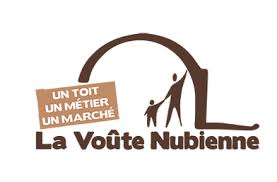Accelerating eco-construction for resilient communities: the Nubian Arch market in the Sahel
The Association La Voûte Nubienne (AVN) is an international solidarity organisation that works to promote the Nubian vault eco-construction technique, an architectural solution that is over 3,000 years old and particularly well suited to the Sahelian climate.

Overview of the project
For over 25 years, AVN (Association la Voûte Nubienne) has been designing and implementing strategies to enable the large-scale dissemination of an eco-construction practice — the Nubian Vault (NV) architecture. This technique stands out as the only viable alternative to both disappearing vernacular architectures and modern construction methods that are often ill-suited to local contexts. It also provides a concrete response to the economic, demographic, and climatic challenges facing the subregion.
This dissemination relies primarily on the emergence and growth of a market for NV eco-construction. Within a systemic approach, AVN — working alongside a wide range of partners — deploys its methodology around three main pillars:
an “offer”, built on a network of trained builders capable of operating in both formal and informal economic sectors;
a “demand”, encompassing various client typologies, with rural Sahelian families and community building project owners as the core target;
and a “business environment”, which, by bringing together a diversity of stakeholders, fosters the NV market and more broadly strengthens climate adaptation and community resilience.
Several factors demonstrate that the program is now ready for large-scale expansion, aiming to reach 10,000 beneficiary families per year by 2031: an efficient, innovative, and widely recognized dissemination methodology; a program integrating both adaptation–mitigation and development–environment approaches; proven results, international recognition, and geographic scalability; operational and replicable field teams and partners; a dynamic and growing eco-construction sector; and a solid base of clients, project owners, decision-makers, and donors.
Developing an eco-construction market in West Africa to provide decent and affordable housing, while creating local jobs and promoting a more sustainable economy.
Ongoing research
31/10/2023-31/10/2025
- 1,000 VNs built by 70,000 beneficiaries living or working in a VN
- 7,100 construction projects completed since the programme began, representing 223,500 m² of built space
- 1,600 apprentices, masons, craftsmen and contractors active in the market
- €6.3 million generated in the local economy
- 183,200 tonnes of CO2 equivalent avoided
- 15% average annual market growth over the last 10 years
- 45 civil society partners working to address the issue of adapted housing
Communities perceive a clear improvement in living conditions thanks to better-designed buildings: thermal comfort, reduced humidity and durability of structures. The transfer of know-how is a strong point: local training courses create skilled craftsmen (specialised masons, trainers) capable of reproducing and adapting the technique. Socio-economically, the programme promotes professional integration, particularly among young people, stimulates local job creation and generates additional income. Qualitative environmental impacts include reduced pressure on forest resources (reduced demand for wood for roofing), better use of local materials and a contribution to climate resilience.
Project funded by the French Development Agency (AFD).
organisation
The Association La Voûte Nubienne (AVN) is an international solidarity organisation that works to promote the Nubian vault eco-construction technique, an architectural solution that is over 3,000 years old and particularly well suited to the Sahelian climate. This frugal technique allows houses to be built entirely from earth, a widely available material with no carbon footprint. It also makes it possible to replace tin roofs with vaulted roofs made of raw earth bricks, eliminating the need for wood, which has become scarce, and cement, which is expensive and unsuitable due to its high carbon footprint. It thus offers a remarkable gain in thermal comfort of around 7 degrees.
WATT FOR CHANGE; EUROPEAN UNION; MINISTRY OF LIVING ENVIRONMENT AND TRANSPORTATION IN CHARGE OF SUSTAINABLE DEVELOPMENT; MINISTRY OF SECONDARY TECHNICAL EDUCATION AND VOCATIONAL TRAINING; NATIONAL INSTITUTE OF ENGINEERING FOR TRAINING AND CAPACITY BUILDING OF TRAINERS.



